Your Ultimate Summer Beauty Guide Hair, Face & Body care tips in one Place
1. INTRODUCTION
- Welcome to Your Complete Guide to Summer Beauty!
- We need more love and care for our skin, hair, and body when the temperature rises and the sun shines stronger.
- Ultimate Summer Beauty Guide for Glowing Skin & Healthy Hair Although summer is a time for fun, energy, and vibrancy, it also carries with it problems like sunburn, heat damage, greasy skin, and frizzy hair.
- To help you look and feel your best from head to toe throughout the warmest months of the year, we’ve put together this comprehensive beauty guide.
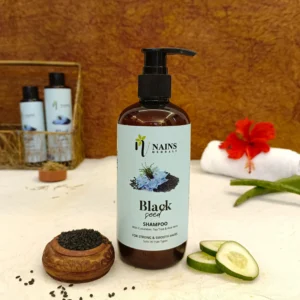
- This blog has simple, expert-recommended hair, face, and body care advice that will keep you looking young, radiant, and protected throughout the summer.
- We have everything you need, from easy skincare routines that manage oil and stop breakouts to hair care tips that reduce frizz and shield your hair from UV rays.
- We also go over important body care techniques that will keep your skin smooth, silky, and safe from the sun, such as exfoliation techniques, hydration advice, and sun protection tactics.
- gorgeous this summer!
- These useful suggestions are made to blend in with your daily routine, whether you’re spending your summer at the beach, at the pool, or simply out and about.
- Embrace glowing, nourished, and healthy skin and hair and bid adieu to drabness, perspiration, and sunburn.
- Make this guide your one-stop shop for anything related to summer beauty.
- Because when you take care of yourself, you feel rejuvenated and confident in addition to looking wonderful.
- Are you prepared to shine all season long? Let’s begin with the best body, face, and hair care advice to keep you looking gorgeous this summer!
2. Summer Hair Care Tips
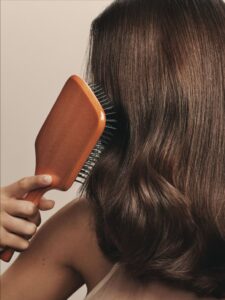
- I know how annoying it can be because I’ve had to deal with frizzy, dry, and sun-damaged hair while on summer vacation.
- Ultimate Summer Beauty Guide for Glowing Skin & Healthy Hair Without the right protection, prolonged exposure to the sun can dehydrate your hair, weaken its strands, and cause color fading, increasing the likelihood of breakage and split ends.
- Incorporating UV protection hair sprays into my daily summer routine was one remedy that really improved my condition after years of trying various cures.
- It’s an easy yet effective technique that protects your hair in the same way that sunscreen protects your skin.
- UV rays are just as bad for your hair as they are for your skin, according to hair health specialists. Overexposure to the sun causes oxidation of color, dehydrates the hair shaft, and breaks down proteins like keratin (particularly if you’ve colored your hair).
- Using hair mists or leave-in conditioners with SPF or UV filters is advised by dermatologists and trichologists.
- These products function as a barrier, keeping moisture in and preventing UV radiation.
- Seek out components with UV-blocking qualities, such as octinoxate, benzophenone-4, or natural oils like coconut or argan oil.
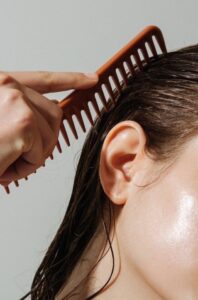
- Selecting dermatologist-tested cosmetics that are devoid of harsh chemicals like parabens and sulfates is crucial, particularly in the summer when your scalp may be more sensitive.
- Always read product reviews and look for expert advice or safety certificates.
- You can rely on companies who have a solid reputation for protecting your hair from the sun, or you can ask your physician or hairstylist for recommendations.
- A delightful natural hair mist can be made at home by combining aloe vera juice, coconut water, and a few drops of vitamin E oil in a spray bottle.
- Even though DIY mists are calming, they might not provide total UV protection unless they are produced especially with UV-blocking chemicals.
Quick Summer Hair Care Tips:
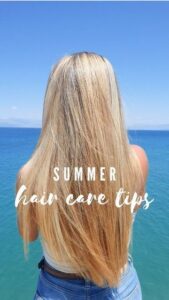
- For extra protection, put on a scarf or cap with a wide brim.
- After swimming in pools or the ocean, rinse your hair with fresh water.
- To replenish lost moisture, deep condition your hair once a week.
- If at all feasible, let your hair air dry naturally instead of using heat styling equipment.
2.2 Managing Frizz & Humidity
- Try using leave-in conditioners or anti-frizz serums.
- You’re not alone if you’ve ever stepped outside on a muggy summer day only to have your sleek hair turn into a frizzy mess in a matter of minutes.
- I’ve encountered this difficulty numerous times, particularly in the monsoon and humid months.
- The realization that frizz is frequently caused by dehydration rather than oiliness was the major turning point in my hair care regimen.
- Making the move to leave-in conditioners and moisture-rich shampoos allowed me to finally manage the frizz and puff that had previously appeared uncontrollable.

- According to hair experts, using the incorrect shampoo can remove natural oils from hair, making it dry and more prone to frizz.
- During the summer, use hydrating shampoos and conditioners that contain glycerin, coconut oil, shea butter, and argan oil instead of sulfates.
- These aid in sealing up the hair cuticle and retaining moisture.
- Care after washing is also important. While your hair is still moist, stylists advise applying lightweight leave-in conditioners or anti-frizz serums.
- Although they are controversial, silicone-containing products (like dimethicone) have been shown to temporarily smooth the cuticle and keep moisture from getting to the shaft, which helps to avoid that undesired frizz.
- Use only dermatologist-tested products that are appropriate for your hair type.
- Serums with high alcohol content should be avoided since they may temporarily smooth the skin but result in long-term dryness.
- Curl creams with anti-humidity qualities are a safer, more nourishing choice for hair that is naturally curly or wavy.
2.3 Summer Hairstyles to Beat the Heat
- On a hot summer afternoon, nothing is worse than having sticky hair that sticks to your neck.
- I’ve discovered that easy, breathable hairstyles assist to prevent breakage and damage to my hair in addition to keeping me cool.
- My favorite? I can avoid heat styling and still look trendy with a high untidy bun or a loose braid.
- Expertise: To avoid exposure to UV rays and sweat accumulation on the scalp, stylists advise wearing your hair loosely tied up during periods of extreme heat.
- In instance, braids reduce friction and breakage while shielding your ends from the light.
- In addition to keeping you cool, messy buns and ponytails stop oil from running from your skin to your hair.

- To prevent hair breakage and creases, celebrity hairdressers frequently recommend the use of scrunchies, silk ties, or no-damage elastics.
- For longer-lasting styles, you may also add a small mist of dry shampoo or texturizing spray to give your hair more volume and hold.
- Reliability: Avoid wearing hairstyles that pull too firmly on your scalp as this may cause breaking or stress headaches.
- To keep your hair from drying out while it’s knotted, always prep it with a light serum or leave-in conditioner.
- These useful looks improve your summertime appearance while also minimizing sun damage.
2.4 Home Remedies for Healthy Hair
- I’ve tried a ton of hair care products over the years to combat summertime dryness and drabness.
- But the straightforward home cures my mother and grandmother taught me were what always produced long-lasting effects.
- These DIY kits, which include anything from calming aloe vera treatments to monthly coconut oil massages, have not only helped me adopt a more sustainable and natural routine but have also rescued my hair over the sweltering summer months.
- Expertise: Natural nutrients included in home remedies help strengthen hair roots, promote scalp health, and replenish lost moisture—particularly helpful for hair subjected to pollution, perspiration, and the sun.
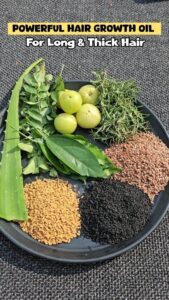
- To make the Aloe Vera & Coconut Oil Mask:
- Combine two tablespoons of fresh aloe vera gel with two tablespoons of virgin coconut oil.
- Apply the mixture to the hair and scalp, paying particular attention to the ends.
- After 30 to 45 minutes, rinse it off with a gentle shampoo.
- This treatment works wonders for burnt scalps, frizz, and restoring a healthy sheen to hair.
- Dermatologists and Ayurvedic practitioners claim that coconut oil contains lauric acid, which has potent moisturizing and antifungal qualities.
- Proteolytic enzymes found in aloe vera, which is well-known for its ability to help with skin and hair care, aid in the regeneration of dead skin cells on the scalp.
- This blend results in a well-rounded mask that benefits both hair strength and scalp health.
- The Yogurt & Honey Hair Pack is yet another great treatment option.
- Honey is a humectant that attracts moisture to the hair, while yogurt is a natural conditioner and probiotic.
- In order to create this pack:
- Take one tablespoon of organic honey and three tablespoons of plain yogurt.
- Apply evenly from roots to tips after thoroughly mixing.
- Rinse with lukewarm water after 20 to 30 minutes.
- This pack is perfect for soothing dry hair, minimizing dandruff, and restoring shine—all issues that are typical in the summer.
- Reliability: Steer clear of chemicals and additives by using only fresh, organic ingredients.
- Before using any new homemade mask, perform a patch test to be sure you won’t experience an allergic response.
- For optimal effects, use these masks once or twice a week. Natural therapies are gentle, but consistency is essential.
Quick DIY Hair Mask Tips:
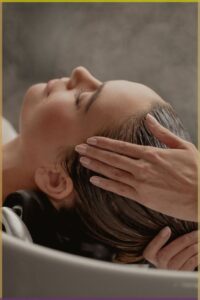
- Whenever possible, use fresh aloe vera gel and cold-pressed oils.
- Apply to dry, clean hair to improve absorption.
- After the mask, use gentle, sulfate-free cleansers instead of harsh shampoos.
- To retain moisture while masking, cover your hair with a shower cap.
4. Body Care Essentials
4.1 Summer Bathing Rituals
- Experience: My daily bathing routine evolved from a simple hygiene habit to a revitalizing ritual that kept me feeling cool and invigorated during the sweltering summer months.
- My mood immediately improved when I switched to body cleansers that had mint or citrus extracts.
- Frequent exfoliation using natural scrubs smoothed my skin and stopped the accumulation of dirt, sweat, and dead skin cells, which can lead to body acne and inflammation.
- Knowledge: Invigorating body cleansers that contain ingredients like peppermint, tea tree oil, or lemongrass provide the skin a cooling sensation.
- Even in hot temperatures, they keep you hydrated by cleansing without depleting your natural oils.

- The secret to summertime body care is exfoliation.
- By removing dead skin cells and unclogging pores, natural scrubs like sugar, coffee grounds, or oatmeal improve your skin’s ability to breathe and absorb moisturizers.
- Frequent exfoliation also helps avoid body acne and ingrown hairs, which are frequent problems during the hot months.
- To prevent over-drying the skin in the summer, dermatologists advise mild exfoliation 1-2 times a week.
- Because they are less likely to produce micro-tears and are less abrasive than synthetic beads, natural scrubs are preferred.
- Plant-based products frequently have antioxidant advantages as well.
4.2 Stay Fresh All Day:
- I used to worry about sweat and body odor all summer long, especially during hectic workdays and outdoor activities.
- Knowing the distinction between deodorants and antiperspirants enabled me to choose the best product for my requirements.
- In order to keep myself comfortable and dry without clogging my pores, I also started using body powders without talc.
- While deodorants cover up or eliminate odors brought on by microbes breaking down perspiration, antiperspirants reduce sweat production by using active chemicals such aluminum compounds.
- Many people find that a combined product works best, but deodorants by themselves can work if you’re sensitive or prefer a more natural choice.
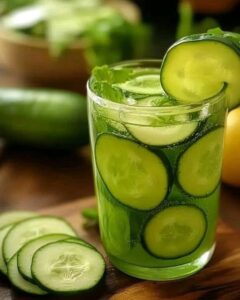
- Body powders sans talc, which are frequently prepared with cornstarch or arrowroot powder, absorb moisture and lessen friction without the hazards of talc, which some studies have connected to health issues.
- These powders improve the efficacy of deodorants and antiperspirants, keep skin dry, and lessen chafing.
- If you have sensitive skin or prefer natural solutions, health care providers advise selecting items marked “aluminum-free.” Dermatologists may suggest clinical-strength antiperspirants for people who perspire a lot.
- Research and consumer safety organizations are supporting the shift to talc-free powders, which are a safer and just as effective substitute for regular freshness.
- To lessen skin irritation and possible hormonal disturbance, steer clear of deodorants and antiperspirants that contain parabens, phthalates, or artificial smells.
4.3 Sunscreen for the Whole Body
- Applying sunscreen to my entire body, not just my face, became a must in my summertime skincare regimen.
- I used to neglect parts like the arms, legs, and neck in my early years, which resulted in uneven tanning and sporadic sunburns.
- I now take care to cover these frequently overlooked areas. I always go for water-resistant sunscreens for beach days or other strenuous outdoor activities so that I may be covered even when swimming or perspiring.
- In order to shield the skin from damaging UVB and UVA radiation that can lead to sunburn, early aging, and an increased risk of skin cancer, sunscreen is essential in the summer.
- Because they are usually exposed and disregarded during application, the neck, arms, and legs are particularly susceptible.
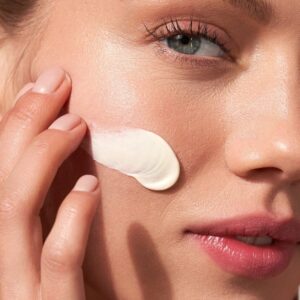
- Formulas that are water-resistant are made to stay effective in the presence of perspiration or water for 40 to 80 minutes.
- These provide persistent protection without the need for frequent reapplication, making them indispensable for swimming, outdoor activities, and extended sun exposure.
- Dermatologists advise applying broad-spectrum sunscreens to all exposed body parts that have an SPF of 30 or higher.
- Reapplying sunscreen should be done every two hours, or more frequently if you’re swimming or perspiring, according to the American Academy of Dermatology.
- Research indicates that even a short period of sun exposure on neglected regions can result in cumulative skin damage over time, highlighting the importance of frequent and thorough application.
- If you have sensitive skin, look for sunscreens that are broad-spectrum, water-resistant, and free of irritants like oxybenzone or parabens.
4.4 After-Sun Body Care
- My skin frequently felt heated, tight, and irritated after spending a lot of time in the sun. Aloe vera gel was my go-to solution for quickly relieving and cooling the pain.
- In order to replenish moisture and stop peeling, I also began using after-sun lotions enhanced with moisturizing and restorative components.
- Knowledge: Aloe vera gel is well known for its cooling, hydrating, and anti-inflammatory qualities. By encouraging collagen regeneration, it speeds up skin healing, lessens redness, and relieves sunburn.
- Calendula, vitamin E, and chamomile are common constituents in after-sun lotions because they help restore the skin’s moisture balance, heal the epidermis, and lessen inflammation.
- After sun exposure, regular application can prolong the skin’s youthful appearance and lessen peeling.0
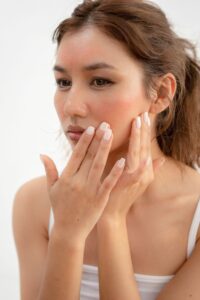
- Because of its skin-calming properties, dermatologists often suggest aloe vera as a natural first aid for light sunburns.
- Its capacity to lessen skin irritation and hasten healing is supported by clinical research.
- Antioxidant and emollient-based after-sun lotions aid in skin repair by scavenging free radicals and retaining moisture, which is essential for avoiding dryness and damage.
- For optimal effects, use pure aloe vera gel or products with a high aloe content and little additives.
- Steer clear of after-sun creams that include harsh chemicals or perfumes that could aggravate sunburned skin.
- Maintaining skin health and comfort after sun exposure requires proper hydration.
5. Bonus Tips: Summer Beauty Must-Haves
- I update my beauty kit every summer to accommodate the heat, humidity, and sun exposure. Over time, I discovered five key items that, from sun protection to hydration and freshness, make my regimen easy yet efficient.
- You can find great solutions that meet your demands without sacrificing quality, depending on your budget.
- The following are the top five summertime beauty essentials:
- A broad-spectrum sunscreen with an SPF of 30 or higher is essential for avoiding sunburn, early aging, and skin cancer.
- Gel-cream or a light moisturizer keeps skin nourished without clogging pores.
- Refreshing Facial Mist – For cooling and immediate hydration all day.
- Anti-Frizz Hair Serum or Leave-In Conditioner: Prevents frizz caused by humidity.
- In hot weather, talc-free body powder or antiperspirant keeps you dry and fresh.
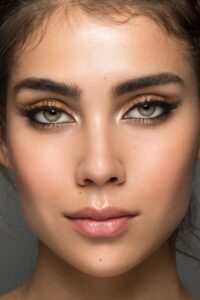
- These are the cornerstones of any successful summer routine, according to dermatologists and cosmetic specialists.
- For example, the American Academy of Dermatology recommends wearing sunscreen every day, yet hairdressers stress the need of anti-frizz serums in humid regions.
- Clinical healthcare favors face mists and talc-free powders because of their mild, non-comedogenic qualities, which allow them to be used frequently even on sensitive skin.
- Low-Cost vs. High-End Options:
- There are great options at all price points for each category:
- Sunblock:
- Budget-friendly and efficient is Neutrogena Ultra Sheer SPF 55.
- La Roche-Posay Anthelios Melt-in Milk SPF 60 is a premium product that offers superior UVA/UVB protection while being lightweight.
- A moisturizer
- Cetaphil Daily Hydrating Lotion is inexpensive, straightforward, and fragrance-free.
- High-end: the light yet powerful Clinique Moisture Surge 72-Hour Auto-Replenishing Hydrator.
- Mist on the Face:
- Mario Badescu Facial Spray with Rosewater and Aloe Herbs is reasonably priced.
- Premium: Natural and full of antioxidants, Herbivore Rose Hibiscus Hydrating Face Mist.
- Serum Anti-Frizz:
- Garnier Fructis Sleek & Shine Anti-Frizz Serum is reasonably priced.
- Premium: Moroccanoil Treatment, which uses argan oil to nurture.
- Body Powder:
- Gold Bond Ultimate Comfort Body Powder (talc-free) is reasonably priced.
- Premium: Natural ingredients in Burt’s Bees Baby Dusting Powder.
- Patch testing new products is always a good approach to make sure they work with your skin and hair type.
- When possible, look for labels that have been dermatologist-tested and cruelty-free. Making educated decisions without going over budget can be facilitated by reading reviews and professional advice.
- By regularly using these five summer essentials, you may streamline your routine and reap the greatest benefits, enabling you to enjoy the warm season in comfort and confidence.
6. Healthy Lifestyle Tips for Summer Beauty
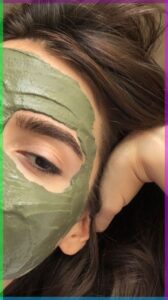
- Eat Hydrating Fruits and Vegetables: Eating seasonal fruits and vegetables that are high in water content, such as leafy greens, watermelon, cucumber, oranges, and strawberries, can help you stay hydrated and gain vital vitamins, minerals, and antioxidants.
- These nutrients support skin healing and brightness while fending off oxidative damage brought on by sun exposure.
- For instance, leafy greens provide vitamin A and E to support skin cells, while fruits high in vitamin C increase the creation of collagen.
- Sleep Well for Skin Rejuvenation: Skin rejuvenation depends on getting enough good sleep.
- The body repairs UV damage, lowers inflammation, and regulates hormones that influence acne and oil production while you sleep deeply.
- Tired, lifeless skin, more wrinkles, and slowed healing are all consequences of sleep deprivation.
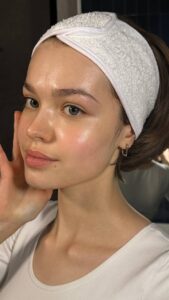
- Drinking water is always recommended by health professionals as a straightforward but efficient strategy to keep skin healthy, especially during the summer.
- Men should consume approximately 3.7 liters of fluids per day, while women should consume 2.7 liters, including water from food, according to the National Academies of Sciences, Engineering, and Medicine.
- Nutritionists emphasize how antioxidants from fruits and vegetables can shield skin from environmental stressors and photoaging.
- Research indicates that diets high in fruits and vegetables are associated with better skin texture and moisture.
- According to research that links inadequate sleep to compromised skin barrier function, sleep specialists stress the significance of maintaining a regular sleep schedule and practicing excellent sleep hygiene for the best possible skin health.
Conclusion:
- As we conclude this comprehensive guide to summer beauty, keep in mind that taking care of your body, face, and hair during the warmer months calls for a multifaceted strategy.
- Your hair deserves extra care this summer, from nourishing your locks with natural home cures to controlling frizz with the proper products and protecting it with UV sprays and fashionable caps.
- Gentle washing, frequent exfoliation, and vigilant sun protection are essential for your face. Boost your radiance naturally with DIY face packs like cucumber-yogurt and turmeric-honey mixes, and keep your skin nourished with light moisturizers and revitalizing face mists.
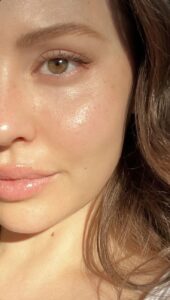
- Body care is equally crucial. Use talc-free powders and potent antiperspirants to stay fresh, embrace summer bathing routines with revitalizing body washes and natural scrubs, and always wear sunscreen on your entire body, paying particular attention to frequently overlooked areas like your arms, legs, and neck.
- After those sunny days, your skin will remain calm and moisturized with post-sun care products including nutritious after-sun lotions and calming aloe vera gel.
- Remember the importance of healthy lifestyle choices: prioritize getting enough sleep for skin and hair renewal, drink lots of water, and eat hydrating fruits and vegetables.
- These fundamental practices keep you radiant from the inside out and enhance the benefits of your topical treatments.
Your Summer Beauty Checklist:
- Sunscreen with a broad spectrum for the face and body
- UV protection hair hats and sprays
- Face mists and light moisturizers
- Hair serums that prevent frizz
- nutrient-dense, hydrating diet
- Drinking enough water and getting enough sleep
- relaxing after-sun therapies
- Adopt these habits and advice with assurance. Looking nice is only one aspect of summer beauty; another is feeling your best in the sun.
- Thus, maintain your radiance and self-assurance while enjoying your sunny days with healthy, bright skin and hair!
FAQS
1. How can I protect my hair from sun damage in summer?
Use UV protection sprays, wear wide-brimmed hats or scarves, and avoid excessive heat styling. Deep condition weekly to restore moisture.
2. What SPF is best for summer skin protection?
Use a broad-spectrum sunscreen with SPF 30 or higher. Reapply every 2–3 hours, especially if you’re outdoors, sweating, or swimming.
3. How often should I exfoliate my face in summer?
Limit exfoliation to 2 times a week using a gentle scrub or chemical exfoliant. Over-exfoliating can damage your skin barrier, especially in heat.
4. Which hairstyles are ideal for summer heat?
Easy-breezy braids, messy buns, and ponytails help keep hair off your neck and reduce sweat and frizz.
5. What natural ingredients help with summer skin care?
Cucumber, yogurt, aloe vera, turmeric, and honey are great for cooling, soothing, and brightening your skin naturally.
6. How can I stay fresh all day during summer?
Use antiperspirants, talc-free powders, shower twice if needed, and wear breathable fabrics like cotton or linen.
7. Should I apply sunscreen even if I’m indoors?
Yes, if you’re near windows or exposed to indirect sunlight, especially during peak UV hours (10 AM–4 PM).
8. How can I prevent frizzy hair during humid weather?
Use sulfate-free shampoos, anti-frizz serums, or leave-in conditioners. Avoid heat and towel-drying; opt for microfiber towels instead.
9. What’s the best diet for summer skin health?
Stay hydrated and eat water-rich fruits (like watermelon, cucumber, oranges) and vegetables to nourish skin from the inside out.
10. How much water should I drink daily for glowing skin?
Aim for 2–3 liters per day. Add coconut water, lemon-infused water, or herbal teas for variety and added benefits.
